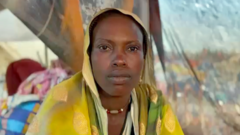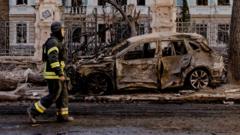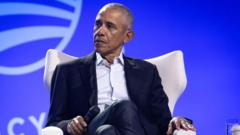A recent investigation uncovers chilling details about the devastating 2013 chemical assault that killed over 1,500 people, placing the focus on the Syrian regime's cruel tactics and the enduring quest for justice by those affected.
Syria's Chemical Attack: Survivors Seek Justice Amidst Ongoing Struggles

Syria's Chemical Attack: Survivors Seek Justice Amidst Ongoing Struggles
Survivors of the 2013 Sarin gas attack in Eastern Ghouta share their harrowing experiences as international legal efforts seek accountability for war crimes.
In the aftermath of Syria's long-standing civil war, the echoes of the 2013 Sarin gas attack in Eastern Ghouta remain vivid in the memories of survivors. That fateful night, an unassuming barrage of rockets hit the area, unleashing a deadly gas that would claim the lives of at least 1,500 civilians, including men, women, and children. Rescue workers arrived to a scene of horror, where victims were found choking, shaking, and foaming at the mouth, succumbing to the invisible murder weapon of the Assad regime.
The attack, occurring on August 21, 2013, marked one of the darkest chapters in the ongoing conflict, described as a "crossing of a red line" by then-President Barack Obama who warned against the use of chemical weapons. Despite the international outcry, Assad's government faced no retribution, nor were any officials held accountable for this heinous act.
Fast forward to the present, and Assad, now in exile in Russia, faces potential war crime charges in a French court, along with 22 co-defendants. However, the unwavering support he receives from Moscow poses a significant barrier to justice ever being served for the victims. Investigators continue to highlight the Sarin attacks as emblematic of the brutal strategies employed by Assad to maintain grip on power, encapsulating the suffering of survivors desperate for recognition and justice for their slain loved ones.
As this narrative unfolds, the determination of those who lived through the nightmare remains clear—their fight for acknowledgment and accountability continues, against a background of political complexities and the shadow of unresolved trauma in a scarred nation.



















